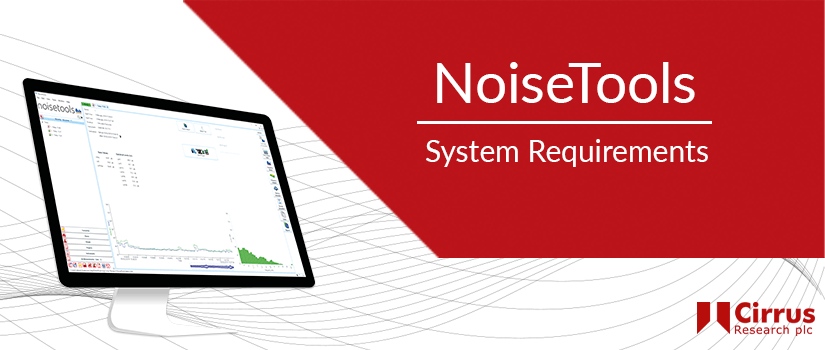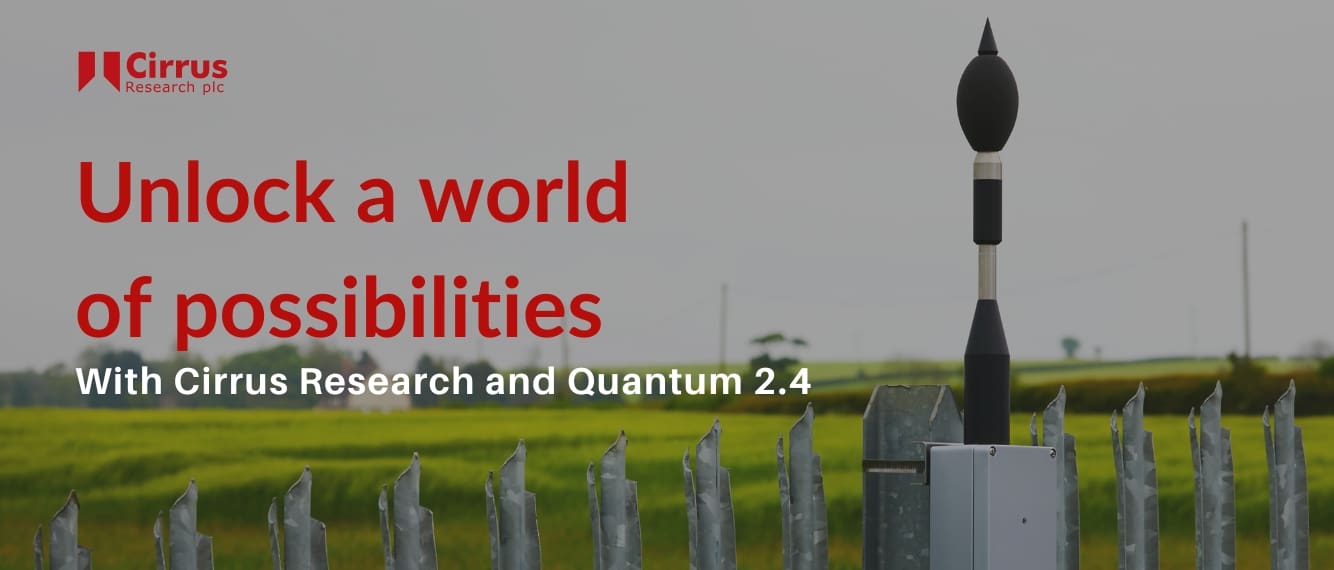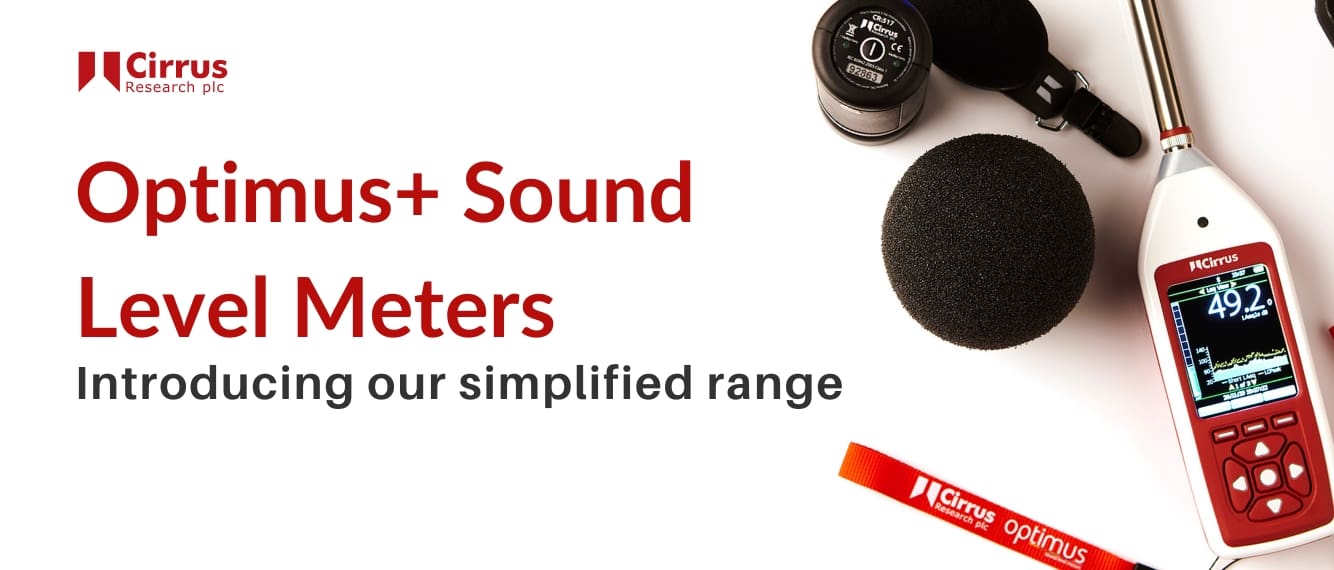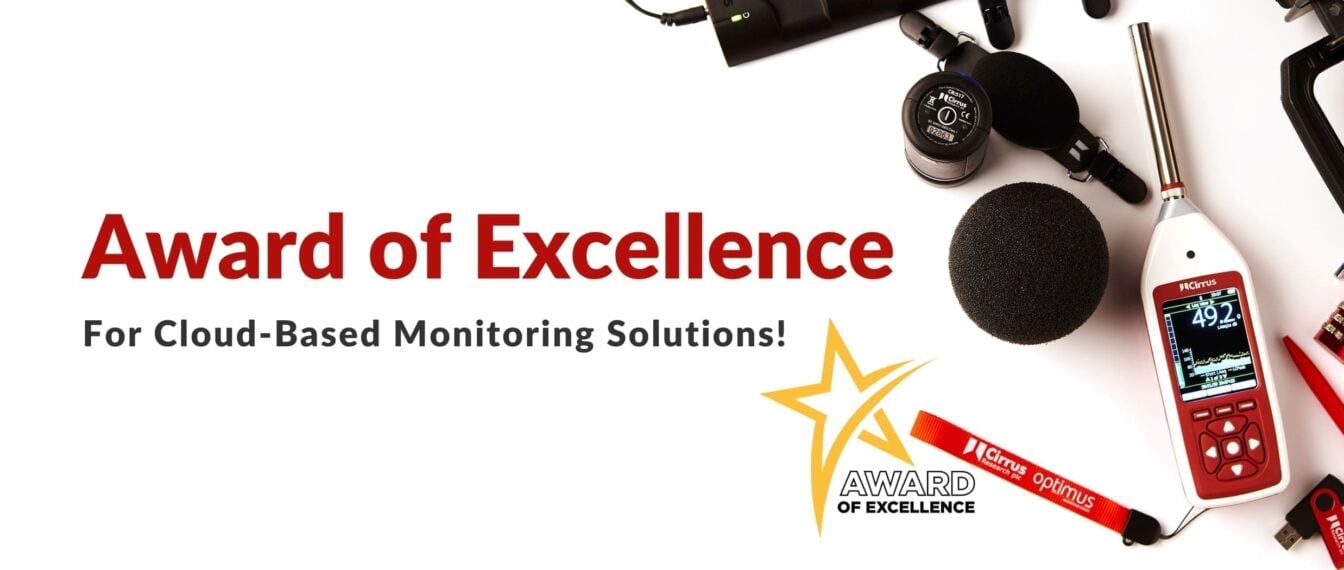As part of our commitment to making noise measurement and monitoring easy and accessible, our flagship range of products comes supplied with our licence-free data download, analysis and reporting software, NoiseTools. To make sure your computer/laptop can run NoiseTools, here are the system requirements:
Please note: as of 8th April 2014, Microsoft ended support for Windows XP and as of 14th January 2020, support for Windows 7 will be withdrawn. Therefore, the minimum recommended system requirement in terms of your operating system will be Windows 10.
Please note: our software is not compatible with macOS, Linux or any other operating system.
Compatible instruments
CR:151B & CR:152B Optimus/Optimus+ Yellow sound level meters
CR:161B, CR:162B, CR:161C, CR:162C, CR:161D & CR:162D Optimus/Optimus+ Red sound level meters
All Optimus/Optimus+ Green sound level meters
CR:110A, CR:112A doseBadge noise dosimeters
CR:120A doseBadge5 noise dosimeters
CK:199A & CK:199B Trojan2 noise nuisance recorder
CK:199: TrojanLITE noise nuisance recorder
CR:800C series sound level meters
CR:260A series sound level meters
PC/Laptop specifications
Minimum system requirements
Operating system: Windows 10 (Windows 7 x64 will continue to work up until support is withdrawn)
CPU (processor): 2GHz Dual Core
Memory (RAM): 3GB
Storage (hard disk space): 10GB free space
Display: 1280×800
Recommended system requirements
Operating system: Windows 10 (x64)
CPU (processor): 3GHz Dual Core
Memory (RAM): 4GB
Storage (hard disk space): 50GB free space
Display: 1280×1024
Ideal specification for the best performance
Operating system: Windows 10 (x64)
CPU (processor): 3GHz Quad Core
Memory (RAM): 8GB
Storage (hard disk space): 100GB free SSD (Solid-State Drive) space
Display: 1920×1080
Dedicated NVIDIA graphics card with CUDA (Compute Unified Device Architecture) support
Dedicated sound card and external speakers
Storage requirements
Approximately 1GB for installing NoiseTools and dependencies
Up to 512MB for temporary files during measurement download
1GB per instrument per year for measurements and time history data, assuming typical usage
Where an instrument is storing and downloading audio recordings, additional storage space will be required. The amount of storage will depend on the length of the recordings and the audio quality you’ve chosen. Audio recordings require the following amounts of space:
Standard Quality 120MB/hr
Studio Quality 1.4GB/hr
Sound card for audio playback
NoiseTools can work with on-board sound cards and even internal laptop speakers. However, for the best results, a dedicated card and external speakers are required. Some onboard sound cards may not be capable of playing studio-quality 96kHz audio. In these cases, an external sound card will be required. In some cases internal speakers are sufficient. However, to play back at realistic levels, such as when using the speaker calibration feature, good quality external speakers are required.
Graphics card
NoiseTools uses the latest technologies to draw the user interface directly using the graphics card. This gives a much better-looking and more responsive experience, and allows us to easily provide certain advanced features, such as the 3D frequency analysis view.
Most onboard graphics chips can provide more than enough power to display the basic user interface, but the more advanced screens will be noticeably smoother on more powerful hardware.
NoiseTools is also able to use the latest CUDA graphics cards from NVIDIA, to do FFT and other complex calculations. This can be done many times faster as compared with running these calculations on the main processor. This feature requires a CUDA-capable card and a 64bit version of Windows.



